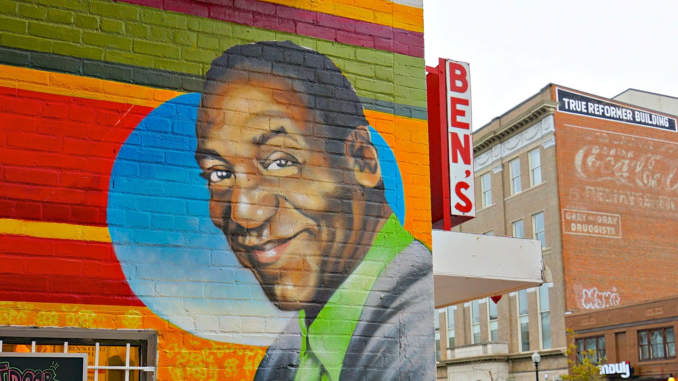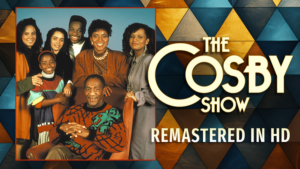
The Cosby Show, which aired from 1984 to 1992, became one of the most iconic and influential television series in American history. For millions of viewers, it represented a groundbreaking portrayal of Black family life in America. The show’s focus on the Huxtable family, led by Dr. Heathcliff Huxtable (played by Bill Cosby) and his wife Clair (Phylicia Rashad), offered a refreshing contrast to the prevalent stereotypes of Black people on television at the time.
Yet, in the wake of Cosby’s criminal conviction and the subsequent revelations of his personal life, many have struggled to reconcile the joy the show brought with the dark shadow now cast over its creator. This has led to an ongoing debate: Were we wrong to love The Cosby Show?
Breaking New Ground
At its core, The Cosby Show was groundbreaking because it portrayed an affluent, educated Black family living in Brooklyn, New York, with an emphasis on positive role models, humor, and family values. Dr. Huxtable, a successful obstetrician, and Clair, a lawyer, were depicted as both accomplished professionals and loving parents, demonstrating the possibility of success and stability in Black communities, something that had been rarely seen on mainstream television before.
In an era when Black characters were often portrayed as criminals, servants, or victims, the Huxtables offered a refreshing alternative. The show was more than just a sitcom – it became a cultural milestone. It was an aspirational portrayal, showing young Black children that success was not only possible but also desirable. For Black audiences, seeing people like themselves in such positive roles was immensely empowering.
The Influence of ‘The Cosby Show’
The Cosby Show did more than just entertain. It shaped public perception of African-American families and contributed to conversations about race in America. It broke barriers by casting Black actors in roles that were previously reserved for white actors, and it helped to dismantle the notion that Black stories could only be told from the perspective of struggle and hardship.
The show had a ripple effect on other sitcoms and films that followed, opening the door for other Black-led projects to find mainstream success. It helped give rise to spinoffs like A Different World, which explored the college experience of African-American students, further shaping how Black culture was viewed on television.
Beyond just entertainment, the show also gave its stars, particularly Cosby, the platform to become larger-than-life figures in the entertainment industry, with the power to challenge norms and set new standards for what could be portrayed on screen.
The Struggle to Reconcile
However, the admiration for The Cosby Show has been complicated in recent years. Bill Cosby’s criminal conviction for sexual assault and the many allegations against him have created an ethical dilemma for fans. For many, this has led to a sense of betrayal and confusion – how could a show that we cherished be tied to someone whose actions were so reprehensible?
In such instances, people often grapple with a difficult question: can we still appreciate the art while condemning the artist? With Cosby’s conviction, some have argued that the legacy of the show has been tainted, and that it is no longer appropriate to celebrate it. They point to the harm Cosby caused and argue that, in light of his actions, the joy the show brought should be reconsidered.
Yet, there is a compelling case to be made that our admiration for The Cosby Show was not misplaced. The show itself, its portrayal of the Huxtable family, and the positive impact it had on Black representation in media were genuine and significant. The work done on screen should be distinguished from the actions of the person behind it. The Cosby Show was not an endorsement of Cosby’s personal life, but of the characters and ideals it presented.

A Legacy Not Defined by One Person
While Cosby’s personal behavior has undoubtedly affected how we view his legacy, it is important to remember that The Cosby Show was a collaborative effort. Its cast, crew, writers, and producers all contributed to its success, and the show’s portrayal of a positive Black family was an achievement that went beyond Cosby himself. In the larger context of television history, The Cosby Show remains an invaluable touchstone in the representation of Black Americans.
The cast members, including Phylicia Rashad, Malcolm-Jamal Warner, and Lisa Bonet, all brought their talents to the table, contributing to a series that offered a vision of family and success that transcended racial boundaries. Their contributions to the series are deserving of recognition, even as we grapple with the darker aspects of Cosby’s personal life.
The Show’s Enduring Impact
Despite the controversy surrounding its creator, the impact of The Cosby Show is undeniable. It inspired generations of Black families, encouraged conversations about race and class, and paved the way for more inclusive television programming. The show’s influence is still felt in the media landscape, from the continued success of projects centered on Black families to the conversations around diversity and representation in Hollywood.
The Huxtables, with their warmth, intelligence, and charm, will always be a part of television history, regardless of the actions of their creator. And in this way, we weren’t wrong to love The Cosby Show. The love for the characters, the messages of unity, and the celebration of Black excellence are still valid. The Cosby Show wasn’t just about Bill Cosby – it was about a vision for a better, more inclusive world, one where Black families could be shown as successful, loving, and whole.
In the end, the show’s cultural significance and the love we felt for it are separate from the flaws of its creator. And that is something worth celebrating.
